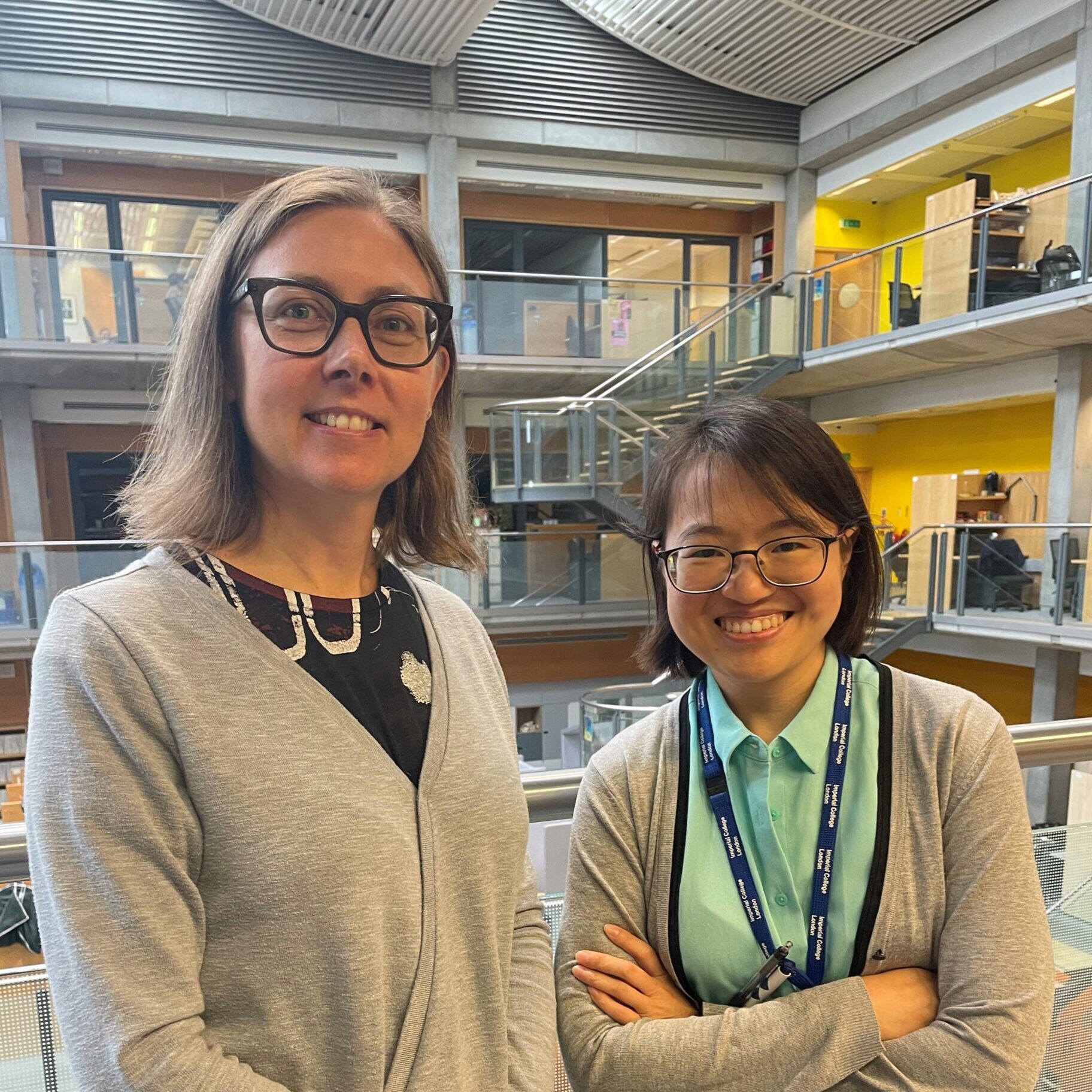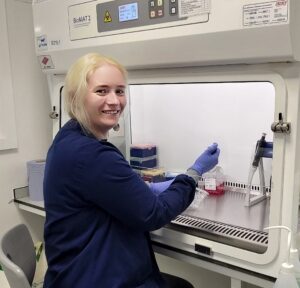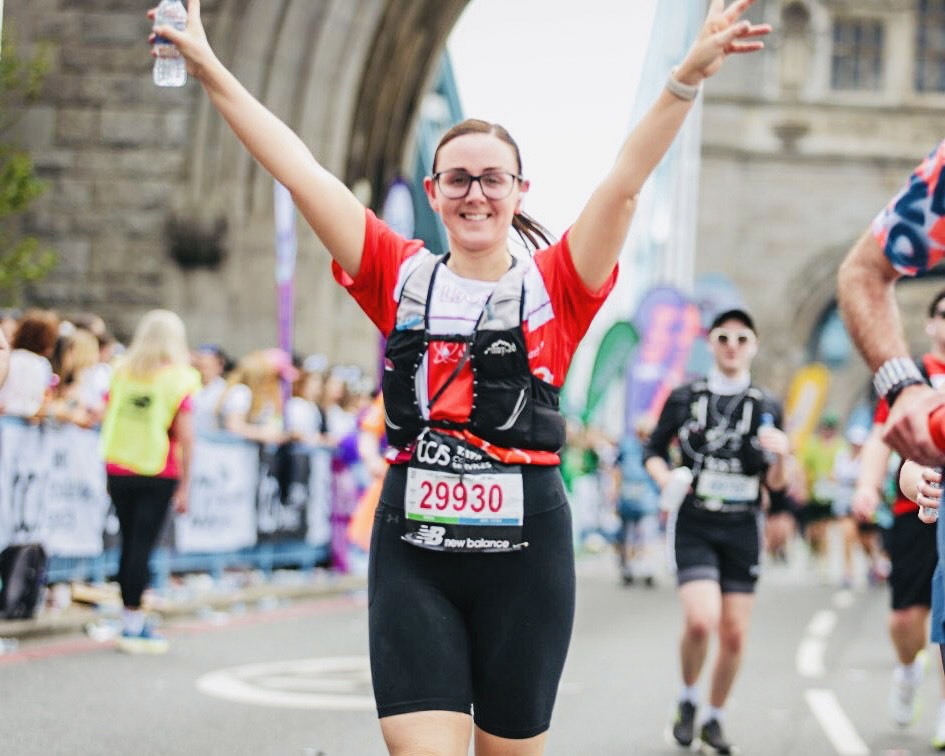
Women who are leading the way in researching treatments for blood cancers have thrown their backing behind the tenth anniversary of International Day of Women and Girls in Science and said it should be a spur to attract more females into the sector.
Professor Cristina Lo Celso, Dr Germaine Chia (pictured above) and Assistant Professor Sophie Kellaway were all recipients of grant support from Leukaemia & Myeloma Research UK last year to help them continue ground-breaking work into blood cancers.
Tuesday February 11th marks the tenth anniversary of the United Nations declaration of an International Day of Women and Girls in Science. All three scientists said there were too few women in senior roles in science and more should be done to encourage girls into the sector.
Citing Marie Curie, the Nobel prize winning physicist who helped develop treatments for serious disease, Professor Lo Celso and Dr Chia said there were many examples of brilliant women scientists and girls should be encouraged to follow their dreams.
But they warned a gender imbalance with far more men than women in senior scientific roles could dissuade girls from following a science career for many possible reasons, such as feeling they would be out of place or unable to get their voices heard.
They pointed to the importance of having a diversity of views within the scientific community to promote a rich mix of ideas and encourage innovation. “I have experienced how productive, effective and enriching it is to work in a diverse environment and having gender balance strongly contributes to that,” Professor Lo Celso said.
She went on: “Girls and women provide a unique perspective in areas which have traditionally been under-researched in the past. Encouraging participation of women both as researchers and research participants can help to advance our knowledge in these areas, for example women’s health or conditions which may affect women and men differently.”
Dr Chia said: “It has been such a privilege for me to be supervised by Prof Lo Celso, who is a living example that it is possible to be a world leader in science as a woman and do what you love, while balancing this with family life.”
She said there were several women post-doctorate and PhD students working with Professor Lo Celso at Imperial College London, demonstrating that women working in science need not be an exception to the rule – but she said having a supportive mentor was crucial.
“Encouraging more girls/women to pursue careers in science now will mean we can continue to inspire future generations of girls to do the same in the years to come,” Dr Chia added.
 Assistant Professor Sophie Kellaway said biosciences, including cancer research, did attract more women taking undergraduate and post graduate degrees, but those numbers dropped off sharply across a whole career trajectory.
Assistant Professor Sophie Kellaway said biosciences, including cancer research, did attract more women taking undergraduate and post graduate degrees, but those numbers dropped off sharply across a whole career trajectory.
“The loss of talented women to research is undoubtedly harming progress,” she said. “Whilst we know that some loss of women in research is due to life circumstances, we also know that women often feel less confident to go for the same opportunities as men, and so it’s important that women are supported and encouraged at all stages.
“The buy-in from charities such as LMRUK to say that yes they believe we are doing important research really does go a long way!”
UNESCO, the sponsor of International Women and Girls in Science Day, wants to make the tenth anniversary of the event an opportunity to explore the critical role of women in scientific innovation and discuss the need for inclusive media representation to challenge gender stereotypes in Science, Technology, Engineering and Mathematics (STEM) careers.
A debate at UNESCO headquarters in Paris on February 11th aims to bring together Member States, rising and renowned scientists, public and private leaders, UNESCO scientific networks and Chairs, journalists, as well as students.
Our Operations Director at LMRUK, Dr Joanna Tilley, said: “We know from our work at the charity the vital role that women play in researching blood cancers and developing innovative treatments that are saving lives.
“But we are also aware of the barriers to entry into science careers that many women and girls feel. If International Women and Girls in Science Day can help to encourage more girls to believe they can succeed in the sector, then it will have made a positive difference.”
Professor Cristina Lo Celso and her PhD student Dr Germaine Chia were awarded a £40,000 research grant for a two-year project that aims to improve the efficiency of treatment for blood cancers and reduce its toxicity.
Their project is entitled “Regaining control and restoring balance: Understanding bone marrow microenvironment remodelling in Acute Myeloid Leukaemia to aid hematopoietic recovery after chemotherapy.”
For more information on our research grants, visit: https://lmruk.org/research/









